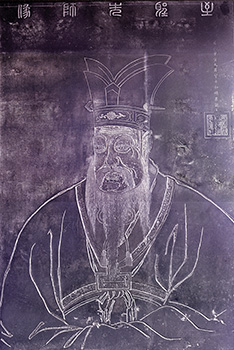Confucius, << kuhn FYOO shuhs >> (551?-479? B.C.), was the most influential and respected philosopher in Chinese history. From about 100 B.C. to the revolution of 1911, the ideas of Confucius served as the single strongest influence on Chinese society. These ideas, which are called Confucianism, stress the need to develop moral character and responsibility.

Chinese governments made Confucius’s teachings the official state philosophy. Millions of people in China—and in such nearby countries as Japan, Korea, and Vietnam—honored Confucius in much the same way as other peoples honor founders of religions. For details of the philosophy of Confucius, see Confucianism.
Confucius was born in the duchy of Lu, in what is now Shandong Province, China. His real name was Kong Qiu. The name Confucius is a Latin form of the title Kongfuzi, which means Great Master Kong. According to tradition, Confucius’s father died when he was a child and he grew up in poverty. He failed in an attempt to become an adviser to a wise ruler. Confucius had wanted the position so he could put into practice his ideas for reforming society. Confucius received some minor official appointments, but at his death he was largely unknown in China. His disciples spread his teachings.
No book definitely written by Confucius exists. His disciples recorded his conversations and sayings in a book called The Analects.
